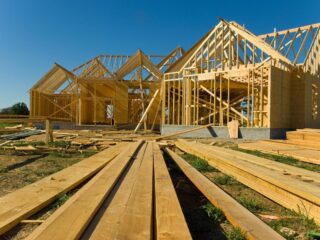
Solving the housing crisis is not purely the role of the government. This is something that influences you, your business, and your surroundings. Families are losing services they can afford, and workers are unable to live anywhere close to their place of work. This shortage impacts everyone, including a real estate developer. When people can’t find homes, businesses slow down, and the market becomes unstable.
In the U.S., millions of homes need to be built just to meet current demand. In California alone, the shortage is about 3.5 million homes. In New York, around 40% of people spend more than they can afford on rent just to keep a roof over their heads. These are not just numbers; they are signs that the market is broken.
You have the power to help, so you don’t need to fix the whole crisis by yourself. But you can build projects that make a real difference, you earn profits, and it grows your reputation. Let’s talk about five ways you can do that.
- Work with Public-Private Partnerships
You can’t solve the housing crisis alone, but when you team up with local governments, you get access to tools that make your projects easier and cheaper. Cities often own land and have funding programs that can help.
In Denver, for example, developers worked with the city to turn unused land into mixed-income housing. They saved time, lowered costs, and delivered homes faster.
You don’t have to wait for the government to contact you. Take action, map out city-owned land in your area, check what zoning rules apply, and come up with ideas for mixed-use or mixed-income housing. When you bring a solid plan to the city, it shows you are serious and are more likely to get their support quickly.
- Be Transparent with Communities
People often push back against new housing projects because they feel left out. They worry about traffic and rising prices. But the real issue is usually trust. You can avoid problems by being honest and open.
Experts like Michael Hershman say that clear communication helps prevent delays and builds support. You should show your plans clearly and explain the benefits honestly.
People feel heard when you involve the community from the onset. In Boston, when developers had regularly scheduled meetings with residents, lawsuits were left unfiled, and projects got the green light sooner. Transparency is also beneficial for saving that precious time and money.
- Use Inclusive Zoning to Your Advantage

Some developers speak against inclusionary zoning, as it may force them to allocate affordable units. However, this rule can benefit you if you add affordable units; cities often offer incentives such as tax breaks, larger building permits, or additional floor space. Take New York, for example, where if developers build affordable units, they are entitled to construct more total units.
When you include both affordable and market-rate homes, you reach more buyers and renters. You also build trust with city officials and the community, which often leads to fewer project delays and faster approvals.
- Try Modular and Prefab Construction
If you want to cut costs and finish projects faster, consider modular and prefab construction. Traditional building methods often take over two years. Modular construction can shorten that timeline. It reduces labor issues and helps control material costs.
In Los Angeles, one nonprofit cut costs by almost 30% per unit by using modular housing. In Sweden, prefab homes are finished in months instead of years. You don’t need to switch everything at once. Try prefab construction on a small project, like workforce housing. If it works well, you can use it on bigger developments too.
- Get Support from Mission-Focused Funds
You don’t always have to depend on banks or private investors. Today, more foundations and social impact funds are investing in housing that helps communities.
The Soloviev Foundation, for example, has backed affordable housing projects while also doing real estate development. When you combine mission-driven funding with traditional capital, you can get approvals and financing for projects that might not work otherwise.
You don’t have to give up profits. These partners often share the risk, allow more time for the project, and care about long-term community health.
The Path Forward for Developers
As a real estate developer, you already know how to manage land, permits, costs, and returns. The housing shortage makes your job more complex, but it also gives you a chance to lead.
The housing crisis won’t go away overnight, but if you take wise steps, you are moving in the right direction for your business, your city, and the families who need a place to call home.












